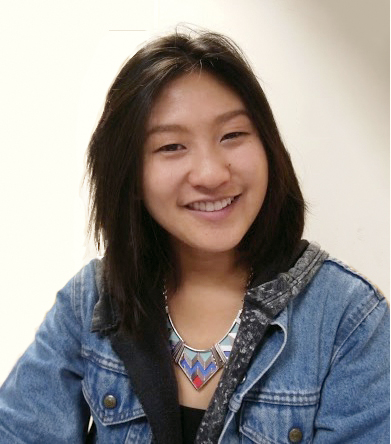Afterword: Pioneering My Way
Open gallery

Advocating for Inclusivity and Community in College
by Karissa Tom CAS ’16
I’m a 20-year-old half-Chinese, half-Japanese fourth-generation American. And until three years ago, I didn’t know I was a minority.
Growing up in San Francisco, my home life reflected the city’s culture of diversity and acceptance: I was raised in an extended family network of Chinese babysitters with half-Filipino grandchildren; Jewish aunts and black uncles; and half-Japanese cousins who spoke Spanish. At school, a majority of my peers were also Asian American, so I never had to question my place based on race. Yet despite San Francisco’s “melting pot” mentality, I discovered how easy it is to assimilate. For various reasons, I became, to my friends and to myself, the stereotypical “white-washed” Asian.
When I was accepted to notoriously hipster Lewis & Clark, I felt like it was the place I was meant to be. I was thrilled for a fresh start as a Pioneer and was confident that my open personality and passion for social issues would win people over. As I prepared for life after San Francisco, I never considered issues of race and cultural communities or how my cultural heritage influenced my everyday life. I naïvely assumed that everywhere else was just as diverse.
Confronting Stereotypes on Campus
Unfortunately, my college transition wasn’t as smooth as I had planned. Within my first week on campus, I found myself counting the number of Asian American students I met and was dismayed that the number could fit on one hand. Though I now know there are many more of us than I realized, I felt completely alone at the time.
Homesickness would soon set in, as well as a constant fatigue from always feeling the need to explain my heritage. Speaking out to defend my identity and upbringing often meant confronting some of my closest friends, which only furthered my sense of isolation. While at home, I stood out for acting “white”; here, I stood out for being Asian. I felt caught in the middle between my Asian heritage, my Americana background, and the stereotype others attached to me.
Finally, I decided that if I was going to be happy and thrive in college, I would need to actively seek out the right communities and create my own safe spaces. That year, I joined the Pluralism and Unity Board (PUB), a student-led initiative that strives to create dialogue about diversity and inclusion on campus.
This decision proved to be the catalyst for my personal cultural awakening. Through PUB, I became involved with the Department of Inclusion and Multicultural Engagement (IME); I was introduced to a whole community of students and staff of color; and I presented on my experiences understanding my heritage and identity in the Race Monologues as part of the 2013 Ray Warren Symposium on Race and Ethnic Studies. These experiences have opened my eyes to the importance of connecting to my roots and advocating for others. I’ve since dismissed my “white-washed Asian” identity, because my nuanced background offers so much more than any one label.
Finding My Place and Looking Forward
Despite finding such a diverse and enthusiastic network, I still sought to create an Asian American student community. Last spring, some Asian American friends and I created an informal group for Asian American students to connect. It’s not a club or an exclusive social group; it’s simply the community I had been searching for.
At our first gathering, 11 of us piled into a minivan and went out for bubble tea (a Taiwanese dessert drink) and dim sum (Chinese dumplings served à la carte). On the way, the car rang with excited voices as students shared their feelings of joy and acceptance. To me, it felt like home.
Now that I’m a junior, I make it a point to help first-year students find community, even if “helping” just means being visible to the few who, like me three years ago, may be secretly counting the number of Asian American students they see. However, unlike three years ago, there is now a budding Asian American student community to be there when those students feel alone. I’m proud to have created the community I needed, but even more so knowing that it’s there for other students. Even the simple acts of going out for dumplings and comparing family traditions contribute to making students feel at home at Lewis & Clark.
I’ve learned many things in college, but the most valuable thus far has been the importance of community. Finding your niche on campus and in the world is a constant journey, but it’s not one that you need to take alone.
Karissa Tom is a sociology/anthropology major. She is involved with the Department of Inclusion and Multicultural Engagement, the Pluralism and Unity Board, and the Student Academic Affairs Board.
More L&C Magazine Stories
Lewis & Clark Magazine is located in McAfee on the Undergraduate Campus.
MSC: 19
email magazine@lclark.edu
voice 503-768-7970
fax 503-768-7969
The L&C Magazine staff welcomes letters and emails from readers about topics covered in the magazine. Correspondence must include your name and location and may be edited.
Lewis & Clark Magazine
Lewis & Clark
615 S. Palatine Hill Road MSC 19
Portland OR 97219

